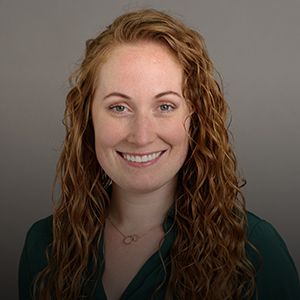
Hello, I’m Dr. Mallory Troyer. One part of being an optometrist that I love is working to help patients with low vision. Many people have not heard of low vision before, so let me share some information.
What is low vision?
Low vision is vision loss or impaired vision that cannot be corrected with traditional glasses, contact lenses, or surgery. It is not the same as total blindness, since people with low vision can still use their remaining sight. However, their remaining sight may interfere with the performance of daily activities, such as reading and driving.
What is a low vision exam? How is it different from a regular eye exam?
Low vision exams differ from routine eye exams, in that the doctor takes a deeper dive into the patient’s daily life and what activities they struggle with due to their impaired vision. The patient and doctor determine specific vision goals (e.g. reading, looking at pictures, watching TV, etc.) Then, the doctor will obtain a glasses prescription using a unique technique designed for visually impaired patients. Lastly, the patient will be able to trial some devices in the office, such as magnifiers, to optimize their remaining vision.
Who can benefit from a low vision exam?
Anyone with reduced vision that is affecting activities of daily living.
What kind of devices are available?
There are three main categories of low vision devices available: non-optical, optical, and video/electronic.
Non-optical aids: large print books, talking watches, talking glucometers, line guides, etc.
Optical aids: glasses, prism half eyes (high-powered reading glasses), handheld or stand magnifiers, telescopes
Electronic: Video/electronic magnifiers, smartphones, tablets, CCTV (closed-circuit television)
How is addressing low vision going to impact patients’ lives?
Addressing low vision can help patients use their remaining functional vision in a more efficient manner. By doing so, we can help patients retain independence and overall improve quality of life.
One of my favorite things about helping patients with low vision is being able to help them regain some of their independence and allow them to continue to do the activities they enjoy. If you or one of your loved ones is struggling with impaired vision, I’d love to help. Please call 425.831.2020 and request a low vision consultation. Looking forward to helping you!
Dr. Mallory Troyer











